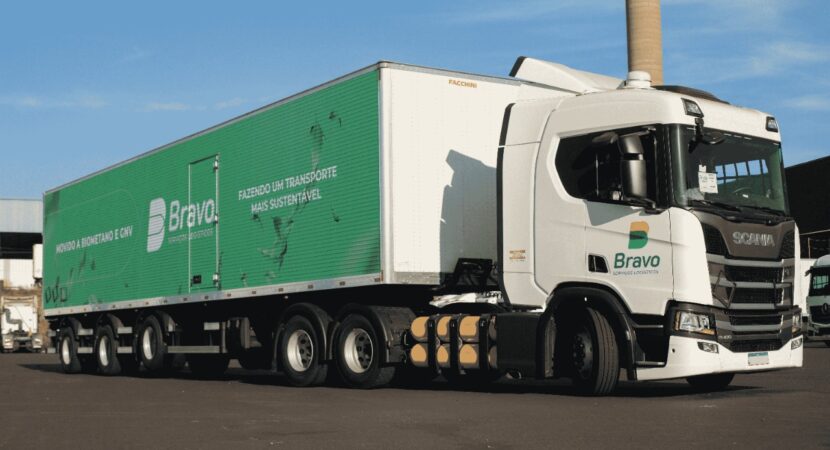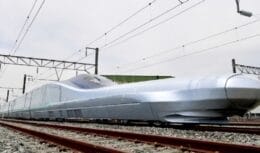
Thinking not only about its operations, but about the environment, Bravo Serviços will incorporate trucks powered by gas with a focus on biomethane. The logistics company aims to reduce pollutant emissions emitted by cars with other types of fuel.
This Thursday (21/07), Bravo Serviços Logísticos announced that it will incorporate four Scania-type trucks powered by natural gas in its fleet, focusing on the reduction of pollutants that this type of fuel can provide. The vehicles will be fueled with biomethane, a renewable source, instead of using CNG, the vehicle's natural gas, which is a fossil source.
Bravo signs a partnership with Geo Biogás & Tec to carry out tests on trucks powered by
In this sense, the company Bravo Serviços entered into a partnership with Geo Biogás & Tec for the purpose of pilot testing the supply of the fleet. In the last year, Bravo produced a test period in one of its cars, which makes routes that make up the short-distance transport operation, that is, from the warehouse to the customer and vice versa. The investment made was more than R$ 3 million and also provided a reduction in noise.
“It is gratifying for us to start an innovative project aligned with the Circular Economy. One of our strategies to reduce CO₂ emissions in transport is to look for alternative fuels, such as biomethane”, highlighted Viviane Ruza, sustainability manager at Bravo Serviços Logísticos. Furthermore, with Otto cycle engine technology, these vehicles are 20% less noisy than diesel-powered vehicles, for example.
For Alessandro Gardemann, CEO of Geo Biogás & Tech, biomethane is the clean and viable solution to decarbonize logistical transport, one of the biggest challenges in the process of energy transition to clean sources in the next decade, which would be the best resource to be environmentally better.
Commitment to decarbonization and the environment are the company's focus
In this scenario, the Scania R 13's OC6 Euro 8 (Proconve P410) engine is one of the most modern for using both CNG and biomethane. What has the effect on reducing emissions between the two types of gases is that the first is not from a renewable source, even if it is abundant on the planet, for example, and the second is from a renewable source and promotes the so-called circular economy.
“Bravo is one of the companies committed to the decarbonization of its operations, betting on a solution that manages to replace 100% natural gas from fossil sources and mostly diesel, thus enabling a more sustainable operation for logistical transport”, says Alessandro Gardemann.
Thus, biogas, being the basis for biomethane, is manufactured from organic waste thrown into nature by 100% of people, whether from materials discarded on farms, industries, businesses and homes, for example.
Thus, there are many ways of reusing organic waste, however, so far, almost all of it is thrown into landfills, sewage networks, rivers and oceans. As raw material, these residues can generate both electricity and other cleaner fuels for other vehicles, improving the environment.
Biomethane is already widely produced in Europe and has also started to gain recognition in Brazil more recently. For example, the company Raízen is one of the biggest investors in this new industry, with plans for electric power plants and, who knows, soon, for fuel as well.
According to Abiogás, Brazil, nowadays, has the capacity to be the largest producer of biomethane in the world and to replace 45% of diesel with renewable and Brazilian energy.








